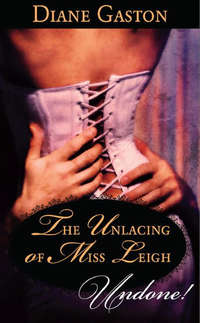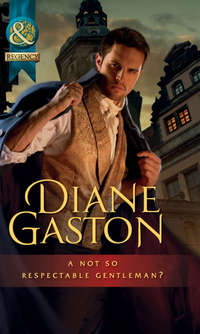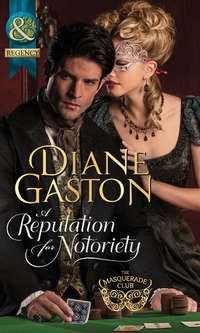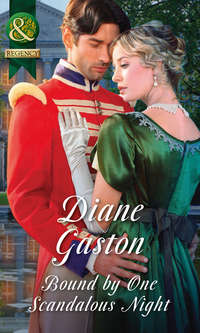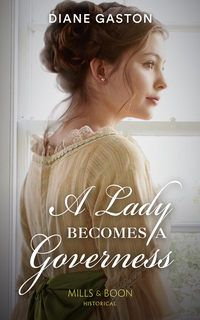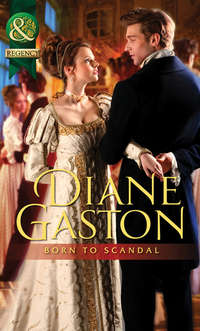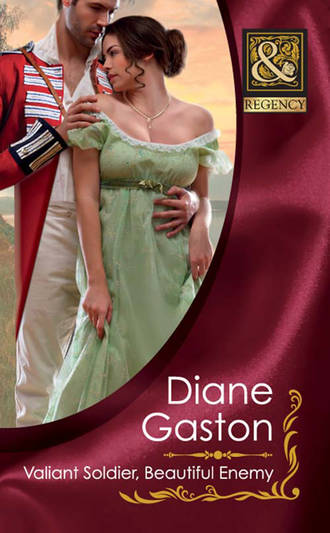
Полная версия
Valiant Soldier, Beautiful Enemy
They never spoke of the future, even though his orders to march could come at any time and they would be forced to part. They talked only of present and past, Gabe sharing more with Emmaline than with anyone heâd ever known. He was never bored with her. He could listen for ever to her musical French accent, could watch for ever her face animated by her words.
May ended and June arrived, each day bringing longer hours of sunlight and warmth. The time passed in tranquillity, an illusion all Brussels seemed to share, even though everyone knew war was imminent. The Prussians were marching to join forces with the Allied Army under Wellingtonâs command. The Russians were marching to join the effort as well, but no one expected they could reach France in time for the first clash with Napoleon.
In Brussels, however, leisure seemed the primary activity. The Parc de Brussels teemed with red-coated gentlemen walking with elegant ladies among the statues and fountains and flowers. A never-ending round of social events preoccupied the more well-connected officers and the aristocracy in residence. Gabeâs very middle-class birth kept him off the invitation lists, but he was glad. It meant he could spend his time with Emmaline.
On Sundays when she closed the shop, Gabe walked with Emmaline in the Parc, or, even better, rode with her into the country with its farms thick with planting and hills dotted with sheep.
This day several of the officers were chatting about the Duchess of Richmondâs ball to be held the following night, invitations to which were much coveted. Gabe was glad not to be included. It would have meant a night away from Emmaline.
His duties over for the day, Gabe made his way through Brussels to the food market. He shopped every day for the meals he shared with Emmaline and had become quite knowledgeable about Belgian food. His favourites were the frites that were to be found everywhere, thick slices of potato, fried to a crisp on the outside, soft and flavourful on the inside.
Heâd even become proficient in bargaining in French. He haggled with the woman selling mussels, a food Emmaline especially liked. Mussels for dinner tonight and some of the tiny cabbages that were a Brussels staple. And, of course, the frites. He wandered through the market, filling his basket with other items that would please Emmaline: bread, eggs, cheese, cream, a bouquet of flowers. Before leaving the market, he quenched his thirst with a large mug of beer, another Belgian specialty.
Next stop was the wine shop, because Emmaline, true to her French birth, preferred wine over beer. After leaving there, he paused by a jewellery shop, its door open to the cooling breezes. Inside he glimpsed a red-coated officer holding up a glittering bracelet. âThis is a perfect betrothal gift,â the man said. He recognised the fellow, one of the Royal Scots. Buying a betrothal gift?
Gabe walked on, but the words repeated in his brain.
Betrothal gift.
Who was the man planning to marry? One of the English ladies in Brussels? A sweetheart back home? It made no sense to make such plans on the eve of a battle. No one knew what would happen. Even if the man survived, the regiment might battle Napoleon for ten more years. What kind of life would that be for a wife?
No, if this fellow wanted to marry, he ought to sell his commission and leave the army. If he had any intelligence at all heâd have taken some plunder at Vittoria, like most of the soldiers had done. Then heâd have enough money to live well.
Gabe halted as if striking a stone wall.
He might be talking about himself.
He could sell his commission. He had enough money.
He could marry.
He started walking again with the idea forming in his mind and taking over all other thought. He could marry Emmaline. His time with her need not end. He might share all his evenings with her. All his nights.
If she wished to stay in Brussels, that would be no hardship for him. He liked Brussels. He liked the countryside outside the city even better. Perhaps he could buy a farm, a hill farm like Stapleton Farm where his uncle worked. When Gabe had been a boy all heâd thought of was the excitement of being a soldier. Suddenly life on a hill farm beckoned like a paradise. Hard work. Loving nights. Peace.
With Emmaline.
He turned around and strode back to the jewellery shop.
The shop was now empty of customers. A tiny, white-haired man behind the counter greeted him with expectation, âMonsieur?â
âA betrothal gift,â Gabe told him. âFor a lady.â
The manâs pale blue eyes lit up. âLes fiançailles?â He held up two fingers. âVous êtes le deuxième homme dâaujourdâhui.â Gabe understood. He was the second man that day purchasing a betrothal gift.
The jeweller showed him a bracelet, sparkling with diamonds, similar to the one his fellow officer had held. Such a piece did not suit Emmaline at all. Gabe wanted something she would wear every day.
âNo bracelet,â Gabe told the shopkeeper. He pointed to his finger. âA ring.â
The man nodded vigorously. âOui! Lâanneau.â
Gabe selected a wide gold band engraved with flowers. It had one gem the width of the band, a blue sapphire that matched the colour of her eyes.
He smiled and pictured her wearing it as an acknowledgement of his promise to her. He thought of the day he could place the ring on the third finger of her left hand, speaking the words, âWith this ring, I thee wed, with my body I thee worship â¦.â
Gabe paid for the ring, and the shopkeeper placed it in a black-velvet box. Gabe stashed the box safely in a pocket inside his coat, next to his heart. When he walked out of the jewellery shop he felt even more certain that what he wanted in life was Emmaline.
He laughed as he hurried to her. These plans he was formulating would never have entered his mind a few weeks ago. He felt a sudden kinship with his brothers and sisters, unlike anything heâd ever felt before. With Emmaline, Gabe would have a family, like his brothers and sisters had families. No matter she could not have children. She had Claude and Gabe would more than welcome Claude as a son.
As he turned the corner on to the street where her lace shop was located, he slowed his pace.
He still had a battle to fight, a life-and-death affair for both their countries. For Gabe and for Claude, as well. He could not be so dishonourable as to sell out when the battle was imminent, when Wellington needed every experienced soldier he could get.
If, God forbid, he should die in the battle, his widow would inherit his modest fortune.
No, he would not think of dying. If Emmaline would marry him before the battle, he would have the best reason to survive it.
With his future set in his mind, he opened the lace-shop door. Immediately he felt a tension that had not been present before. Emmaline stood at the far end of the store, conversing with an older lady who glanced over at his entrance and frowned. They continued to speak in rapid French as he crossed the shop.
âEmmaline?â
Her eyes were pained. âGabriel, I must present you to my aunt.â She turned to the woman. âTante Voletta, puis-je vous présenter le Capitaine Deane?â She glanced back at Gabe and gestured towards her aunt. âMadame Laval.â
Gabe bowed. âMadame.â
Her auntâs eyes were the same shade of blue as Emmalineâs, but shot daggers at him. She wore a cap over hair that had only a few streaks of grey through it. Slim but sturdy, her alert manner made Gabe suppose she missed nothing. She certainly examined him carefully before facing Emmaline again and rattling off more in French, too fast for him to catch.
Emmaline spoke back and the two women had another energetic exchange.
Emmaline turned to him. âMy aunt is unhappy about our ⦠friendship. I have tried to explain how you helped us in Badajoz. That you are a good man. But you are English, you see.â She gave a very Gallic shrug.
He placed the basket on the counter and felt the impression of the velvet box in his pocket. âWould you prefer me to leave?â
âNon, non.â She clasped his arm. âI want you to stay.â
Her aunt huffed and crossed her arms over her chest. How was Gabe to stay when he knew his presence was so resented?
He made an attempt to engage the woman. âMadame arrived today?â
Emmaline translated.
The aunt flashed a dismissive hand. âPfft. Oui.â
âYou must dine with us.â He looked at Emmaline. âDo you agree? She will likely have nothing in her house for a meal.â
Emmaline nodded and translated what he said.
Madame Laval gave an expression of displeasure. She responded in French.
Emmaline explained, âShe says she is too tired for company.â
He lifted the basket again. âThen she must select some food to eat. I purchased plenty.â He showed her the contents. âPour vous, madame.â
Her eyes kindled with interest, even though her lips were pursed.
âTake what you like,â he said.
âI will close the shop.â Emmaline walked to the door.
Madame Laval found a smaller basket in the back of the store. Into it she placed a bottle of wine, the cream, some eggs, bread, cheese, four mussels and all of the frites.
âCâest assez,â she muttered. She called to Emmaline. âBonne nuit, Emmaline. Demain, nous parlerons plus.â
Gabe understood that. Emmalineâs aunt would have more to say to her tomorrow.
âBonne nuit, madame.â Gabe took the bouquet of flowers and handed them to her, bowing again.
âHmmph!â She snatched the flowers from his hand and marched away with half their food and all his frites.
Emmaline walked over to him and leaned against him.
He put his arms around her. âI am sorry to cause you this trouble.â
She sighed. âI wish her visit in the country had lasted longer.â
He felt the velvet box press against his chest. âIt is safer for her to be in the city.â
She pulled away. âWhy? Have you heard news?â
He kept an arm around her. âNo, nothing more. There is to be a ball tomorrow night. There would not be a ball if Wellington was ready to march.â
They walked out of the shop and across the courtyard to her little house. Once inside, Gabe removed his coat; as he did so he felt the ring box in its pocket and knew this was not the time to show it to her. Her aunt, unwittingly, had cast a pall on Gabeâs excitement, his dreams for the future.
She busied herself in readying their meal. Their conversation was confined to the placement of dishes and who would carry what to the table.
When they sat at the table, she remarked, âIt is a lovely meal, Gabriel. I like the mussels.â
He smiled at her. âI know.â
As they began to eat, she talked about her aunt. âTante Voletta came to Brussels a long time ago. After her husband went to the guillotineââ
Gabe put down his fork. âGood God. He went to the guillotine?â
She waved a hand. âThat was when they sent everyone to the guillotine. He was a tailor to some of the royals, you see. Voilà ! That was enough. Tante Voletta came here, to be safe. She opened the shop.â
âWhy does she dislike me?â he asked. âThe English were opposed to the Terror.â
She smiled wanly. âAh, but the English are an enemy of Napoleon. My aunt reveres Napoleon. He made France great again, you see.â Her smile fled. âOf course, he killed many by making them soldiers.â
What she feared for her son, he remembered.
He turned the subject back to her aunt. âI dislike causing you distress with your aunt. What can I do?â
She shrugged. âYou can do nothing.â
He gave her a direct look. âWould you prefer I not spend the night tonight?â
Her lips pressed together. âStay with me. She will know we are lovers soon enough. Everyone around us knows it by now and will delight in telling her of all your coming and going.â
He frowned. âDo I cause trouble for you with your neighbours, as well?â
She smiled again. âNon, Gabriel. Here a widow is allowed lovers. They might think I am wise to bed you. Most of my neighbours like the money the English bring. My aunt likes English money, too, but she would never say so.â
They talked of inconsequentials through the rest of the meal and the cleaning up afterwards. The sky was not quite dark.
Emmaline wiped her hands on the towel. âI am tired tonight. Do you mind if we sleep early?â
âWhatever you wish, Emmaline.â Gabe was not about to make anything more uncomfortable for her.
Their lovemaking that night was bittersweet, slow and filled with emotion, as if both of them realised how fragile it could be to love each other.
The words âWith my body I thee worshipâ repeated in Gabeâs mind as his eyes drank in her beauty and his fingers memorised the feel of her. He wanted to erase the tension between them that her auntâs arrival had caused. He wanted to convince her with his body that he needed her in his life.
They reached the pinnacle of pleasure in a slow climb this night, but finally writhed together in its acute glory. No night-time sharing of confidences this time. They merely held each other in silence.
Perhaps in the morning, with the hope of dawn, he could make love to her again and bare his soul to her as they lay next to each other in tangled linens.
Gabe drifted off into disturbed dreams. He was a child again, cast out of doors, alone in a storm, no one near to hear his calls, no one to shelter him. Lightning flashed in his dream and its clap of thunder jarred him awake, his heart pounding.
The sound came again.
Emmaline sat up. The sound repeated. It was not thunder, but something hitting the window, which was open only a crack.
âSomeone is out there.â She scrambled out of the bed, a sheet wrapped around her.
She lifted the sash and looked out the window.
âMaman!â a voice called in a loud whisper. âMaman!â
âMon Dieu,â she cried. âIt is Claude.â She grabbed her nightdress and put it on. âMy son is here.â
Chapter Four
Emmaline dashed out, not even bothering to put on a robe. She ran down the stairs, threw open the front door and hugged her only child, who now stood a head taller than she.
He lifted her off her feet and crossed the threshold. âMaman!â He spoke in French. âI am here.â
Her feet touched the floor again and she stepped back to look at him. In the unlit room she could see little more than a shadow, a shadow that looked so much like her late husband that it made her gasp.
âLet me light a candle so I can see you.â She pulled him further into the room. âWhy are you here? Have you come home to me?â
âNo, Maman.â It seemed as if his voice had deepened the few months heâd been away. âYou must tell no one, but the army is nearby. Close enough for me to come see you. I cannot stay long. I must return before dawn.â
She lit a taper from the dying coals in the kitchen stove and moved around the room lighting candles. âDo you need food? Something to drink?â
âWhatever is quickly prepared.â He sank down on her sofa.
In the light she could see his hair, as dark as her own, pulled back in a queue. His face had matured a bit, even to the point of a thin moustache above his lip. He did, indeed, look as Remy must have looked in his youth. Claude wore the blue coat of his uniform with the gray overalls that the soldiers wore to keep their white trousers clean. He would have been able to slip through the streets unseen.
âDo not light too many candles,â he told her. âNo one must know I am here.â
She blew out the one sheâd just lit. âIâll bring you some wine.â There was wine left in the bottle she and Gabriel had shared. She poured it into a glass for Claude and brought it to him.
Gabriel! She had forgotten. She hoped he did not show himself.
He drank half of it quickly. âThank you, Maman.â
She sat opposite him and reached out to touch his face. âIâll prepare your food, but please tell me first if you are well. Tell me why you are so close by.â
He took another sip. âI cannot tell you why we are close by, but I am very well. They have allowed me to join the cavalry, Maman. I am a cuirassier. That is a great privilege.â
Claude had loved horses from the time he could toddle across a room. When they had travelled with his father, Claude was happiest riding with his father on his horse. Poor Coco, the mare, had been lost to them after Badajoz, another heartbreak for Claude.
Here in Brussels, Emmaline could never afford to keep a horse, but Claude had befriended Mr Engles, who ran a stables nearby. Claude performed whatever chores the man would give him, anything to be with the horses. Eventually Mr Engles began to pay him and Claude saved every franc until he could purchase a horse of his own. Named Coco. Claude rode Coco away to Napoleonâs army, and most likely having Coco was why Claude was allowed to join the cuirassiers.
âI am not surprised.â She smiled at her son. âYou probably ride better than most of them.â
Would being in the cavalry keep him safer than the infantry? She prayed it was so.
He finished the wine. âThey are veterans of the war and I have learned much from them.â
Learned how to fight and kill, she thought. But had they taught him how to face men wanting to kill him?
She took his glass and stood. âI will bring you more. And some food.â
He rose and followed her to the kitchen, but suddenly froze. âWhat is this, Maman?â
She glanced over her shoulder and saw him pointing to Gabrielâs red coat, hanging over the chair.
âAn English soldierâs coat?â His voice cracked. He gaped at her in disbelief. After a moment his face flushed with colour. âYou have an English soldier here?â He looked around, as if the man would step out from behind a curtain.
âClaude, I can explainââ
âWhere is he? In your bed?â His voice squeaked again.
Before she could say another word, he dashed to the stairs and leaped up them four at a time.
She ran after him. âClaude. Wait!â
âShow yourself,â Claude shouted in French. âShow yourself, you dog.â
From the bottom of the stairs, Emmaline glimpsed Gabriel in his shirt and trousers, standing in the doorway of her bedchamber. Claude charged him and they disappeared into the room. As she hurried up the stairs she heard something crash to the floor.
âIâll kill you!â Claude yelled.
Emmaline reached the doorway. From the light of a candle Gabriel must have lit, she could see Claude trying to strike him and Gabriel, larger and stronger, holding him off.
âIâll kill you!â Claude cried again, his arms flailing. He sounded like a wounded child.
âStop it, Claude.â She tried to pull him away from Gabriel. âSomeone will hear you. They will discover you are here.â
He immediately stopped, but glared at her, his chin trembling. âHe knows I am here. He is the enemy.â
âNon, non, Claude.â Emmaline faced him. âDo you know who this is? Do you?â
He spat. âAn Englishman in your bed. How could you do such a thing?â He took two breaths before charging Gabriel again. âDid you force her?â
Gabriel again held him off.
Emmaline jumped between them. âHe did not force me, Claude. He is our rescuer. Do you not remember him?â
Claude backed away, looking puzzled.
âThis is the captain who kept us safe in Badajoz.â She tried to keep her voice down.
âClaudeââ Gabriel started.
Claude leaned forwards, pointing his finger at him. âDo not say a word! There is nothing you can say to me, you English dog!â
Emmaline pushed him back. âCalm yourself, Claude. We will go downstairs and talk about this.â
He looked as if he was about to cry. âThis is traitorous, Maman.â
âI cannot be a traitor to Napoleon. I am not in his army. You are.â She seized his arm and yanked him towards the door. âCome downstairs.â She turned to Gabriel and spoke in English, âWill you come, too?â
Gabriel nodded.
He did not follow immediately, though. Emmaline took advantage and spoke to Claude. âYou must remain calm and quiet. If someone hears you yelling and fighting, you will be discovered.â
âDo not be a fool, Maman,â he countered. âHe will turn me in. I am already lost.â
âHe is Gabriel Deane, a good man who will do what is right.â
A part of her wanted Gabriel to take her son prisoner. At least Claude would stay alive, but sheâd been a soldierâs wife too long not to understand that Claude would find being a prisoner worse than death.
Claude sat down on the sofa and she sat down next to him, leaving the chair opposite the sofa for Gabriel.
He entered. âShall I pour wine?â
âOui, Gabriel. Merci.â She forgot to switch to English.
He brought the glasses and the wine and placed them on the table, pouring the first and handing it to Claude.
Claude kept his arms crossed over his chest.
âTake it, Claude,â Emmaline said in French.
He rolled his eyes, but did as she said. Gabriel handed the next glass to Emmaline before pouring one for himself.
âTell Claude I have no intention of hurting you in any way. Thatâthat I have the highest esteem for you,â Gabriel said.
Emmaline translated.
Claude closed his eyes as if he wished not to hear. âI cannot speak with him about you, Maman. Ask him what he will do with me.â
She turned to Gabriel. âClaude believes you will take him prisoner, but I beg you will let him go.â
His brow furrowed. âThis is asking a great deal of me, Emmaline. My dutyââ
Her throat tightened. âPlease, Gabriel. Please allow him to leave.â
He glanced away, as if thinking.
âWhat are you saying?â Claude asked her in French.
She gestured for him to be quiet. âGabriel?â
He rubbed his face. âFor you, Emmaline, but only if he swears he has not been gathering information for Napoleon.â
She turned to Claude. âHave you come to Brussels for any other reason than to see me?â
He looked surprised. âNon, Maman. What other reason could there be?â
âTo find out about the English?â
He gave her a withering glance. âI cannot learn any- thing in the dark. And I must return before light or be branded a deserter.â His expression reminded her of when heâd been five years old. âI wanted to see you beforeâbefore the battle.â
She grasped his hand. He averted his gaze.
She turned to Gabriel. âHe only came to see me.â
Gabriel nodded. âVery well. Iâll do as you desire.â
She squeezed Claudeâs hand. âGabriel will allow you to go.â
He blinked in surprise. âThen I must leave posthaste.â
âI will pack you some food.â She rose, shaking inside at the thought of saying goodbye to her son, not knowing if he would ever return to her.
Конец ознакомительного фрагмента.
Текст предоставлен ООО «ЛитРес».
Прочитайте эту книгу целиком, купив полную легальную версию на ЛитРес.
Безопасно оплатить книгу можно банковской картой Visa, MasterCard, Maestro, со счета мобильного телефона, с платежного терминала, в салоне МТС или Связной, через PayPal, WebMoney, Яндекс.Деньги, QIWI Кошелек, бонусными картами или другим удобным Вам способом.


